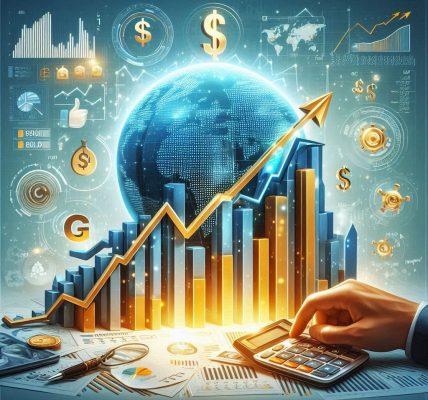Artificial Intelligence (AI) is transforming financial markets at an unprecedented pace. From automated trading to risk management and fraud detection, AI is reshaping how investors, traders, and institutions operate. But is AI a boon or a bane for the financial world? Let’s explore.
1. The Boon: How AI is Revolutionizing Financial Markets
✅ High-Speed Algorithmic Trading
- AI-driven algorithms execute trades in milliseconds, maximizing profit potential.
- Hedge funds and financial institutions use AI for high-frequency trading (HFT) to predict price movements.
✅ Predictive Analytics & Market Forecasting
- AI analyzes vast amounts of historical data, news, and social media trends to predict market movements.
- Machine learning models refine strategies for more accurate investment decisions.
✅ Risk Management & Fraud Detection
- AI-powered systems detect anomalies and suspicious transactions in real time.
- Banks use AI to assess credit risk and prevent financial fraud.
✅ Personalized Investment Strategies
- Robo-advisors like Betterment and Wealthfront use AI to create custom investment portfolios.
- AI helps retail investors make data-driven decisions with minimal fees.
✅ Enhanced Compliance & Regulatory Monitoring
- AI helps financial institutions detect market manipulation and comply with regulations.
- Automated systems ensure businesses follow anti-money laundering (AML) laws.
2. The Bane: Challenges & Risks of AI in Financial Markets
⚠ Market Volatility & Flash Crashes
- AI-driven trading can cause sudden market crashes due to rapid automated sell-offs.
- Examples: The 2010 Flash Crash and similar AI-related disruptions.
⚠ Lack of Human Oversight
- AI models can make biased or flawed decisions if trained on incorrect data.
- Over-reliance on AI could lead to poor risk assessments in volatile markets.
⚠ Cybersecurity Risks
- AI-driven financial systems are prime targets for cyberattacks.
- Hacking AI-based trading algorithms could lead to market manipulation.
⚠ Job Displacement in Finance
- AI automation is replacing roles in trading, banking, and investment analysis.
- The demand for human financial advisors and analysts may decline.
⚠ Ethical & Regulatory Challenges
- AI trading raises concerns about market fairness and potential manipulation.
- Governments struggle to regulate AI-driven financial activities effectively.
3. The Future: Balancing AI & Human Expertise
🔹 Hybrid Approach: Combining AI with human oversight can create a more stable financial system.
🔹 Stronger Regulations: Governments must develop clear AI trading laws to prevent market disruptions.
🔹 Ethical AI Development: Ensuring AI models are transparent and unbiased is crucial for trust.
🔹 Cybersecurity Innovations: Advanced encryption and security protocols must evolve alongside AI.
Conclusion: Boon or Bane?
AI in financial markets is a double-edged sword. While it offers unparalleled efficiency, predictive power, and security, it also comes with risks like volatility, cybersecurity threats, and ethical concerns. The key to sustainable AI adoption lies in regulation, human oversight, and responsible AI development.
🚀 So, is AI a boon or a bane? The answer depends on how we use and control this powerful technology.




